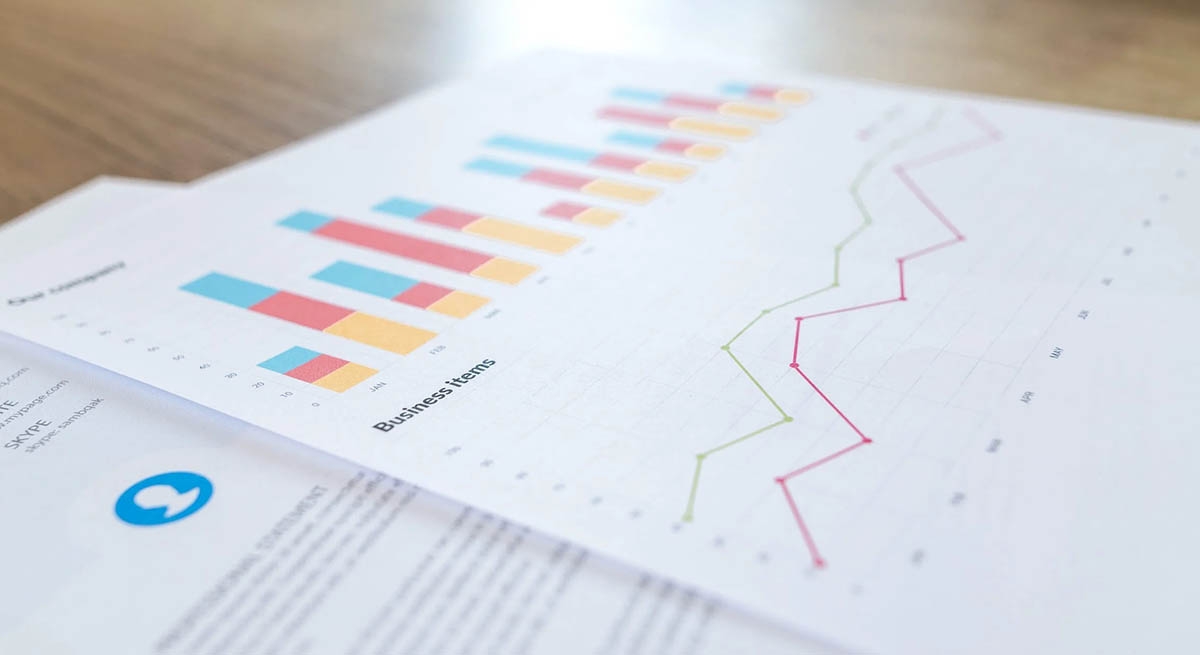
GA4: What You Need to Know About the Next Generation of Analytics?
The next generation of analytics has arrived. With the help of artificial intelligence and machine learning, you can now make more informed decisions than ever. But what exactly is this next generation?
Well, it's quite similar to previous generations in some ways, like having a business strategy that makes sense. However, it's also very different in many other ways, like using progressive technology to improve our understanding of human behavior. This blog post will talk about what makes this new generation unique and some of its new features.
What Is Google Analytics 4?
GA4 is a new version of Google Analytics designed to help businesses better understand cross-platform user behavior by combining web and app data into one property. While GA4 was announced in late 2019, it has only recently begun rolling out in stages.
For example, suppose you're on the beta program. In that case, GA4 should be available by default on your account page as soon as you select "Rollout" under Account Settings > Properties & Views > Property rollouts.
If you already have an existing property and want to switch over to GA4, follow these steps:
- From your account page, click Settings at the top right corner of your screen next to the gear icon
- In "Property access," choose "Change Property" from the dropdown menu for whichever property you wish to edit or delete
Many businesses have already shifted to GA4, while others are still in the process. According to data from BuiltWith, there are at least over 7.5 million websites currently using GA4.
What Is New in Google Analytics 4?
GA4 is much more than just the new version of Google Analytics. It's a complete redesign of its core data model, which can shape your business in many ways. GA4 brings a lot of new features, such as improving ROI with data-driven attributions, easy activation of insights, the ability to track events across different platforms, etc.
Google has announced that it will start phasing out Universal Analytics in July 2023. This means it will not process any new hits or data after July 2023, leaving businesses with less than a year to migrate.
This shift from Universal Analytics to GA4 can be challenging for businesses as they might not know how and what to migrate. Also, using the GA4 platform might require new skills and expertise, which many business employees might not have. In that case, a professional agency can help out.
A GA4 migration or Google Analytics 4 migration agency can provide the expertise required for a seamless transition. It can prevent gaps in your company's performance history, incomplete data, and the inability to measure and analyze data accurately.
What Are the Features of Google Analytics 4?
Google Analytics 4.0 is a new version of Google Analytics that includes the following features:
Tracking Events Over Sessions
Google Analytics 4 allows you to track events over sessions. This means you can use the same event tracking code for the web and app and track events that are unavailable on the web or app. Events like button clicks, form submissions, and other user actions can be tracked simultaneously across multiple devices.
For example, let's say your visitor signs up for an account on your website but does not purchase any product on their mobile device. With GA4, you can measure this behavior by tracking the signup event across both sessions.
Event tracking through server-side tracking can also help overcome the third-party cookies challenge. While Firefox and Safari have already implemented some restrictions on collecting third-party cookies, Google announced that it will phase out third-party cookies in 2023. The use of a server-side tracking model can help convert third-party data into first-party data.
Enhanced Measurements of Time-Based Actions
Google Analytics 4 also allows you to measure time-based actions like page views and events over sessions, a feature previously only available in the real-time section of the Google Analytics dashboard.
You must add a line of code to your tracking code snippet to enable this measurement. Once done, you can see these reports under Acquisition > Events > All Events > Sessions.
The Use of Machine Learning for Better Predictions and Insights
The use of machine learning for better predictions and insights is a feature of GA4. Machine learning is a type of artificial intelligence (AI) that learns from data and can be applied to many different business functions. For example, Google Analytics 4 uses machine learning to predict user behavior by analyzing historical data and other information about the users themselves.
Machine learning helps Google Analytics 4 better understand the impact of marketing campaigns on website traffic, engagement with content on your site, or conversion rate for specific web pages. It allows you to understand how visitors interact with one another based on their characteristics.
The use of AI for predictions can help you a lot. Predictive metrics have become an integral part of the customer experience journey. According to McKinsey, around 71% of customers expect brands to offer personalized services. Through predictive analytics using GA4, you can predict consumers' expectations and cater to them in a more customized way, enhancing the customer experience.
BigQuery Exports
BigQuery export is a feature of Google Analytics 4 that allows you to export your data to BigQuery. You can then use the data in BigQuery to run queries and create reports. You can also load this data into other tools like Power BI or Tableau, so it's helpful if you're already using these platforms.
The basic idea behind BigQuery exports is to take your raw Google Analytics data, which would normally be inaccessible via an API, and make it available for manipulation by other tools such as R or Python scripts.
This makes it possible for analysts experienced with those programming languages but not with GA4's new interface to get at their analytics data with less hassle than they would have using another method of exporting their report fields directly from within GA4 itself.
Conclusion
At this point, you should understand what Google Analytics 4 is and how it can help your business. If you're unsure whether this new product is right for your organization, we recommend you take some time to explore the features before making any decisions.
Photo: Pexels








